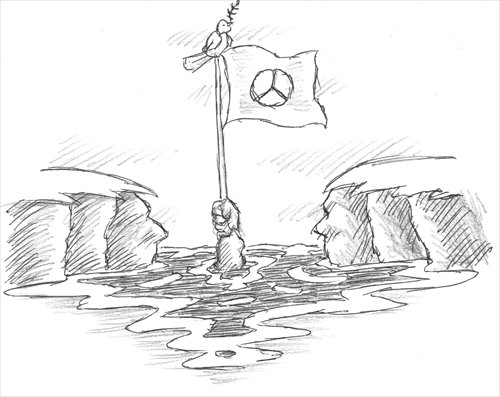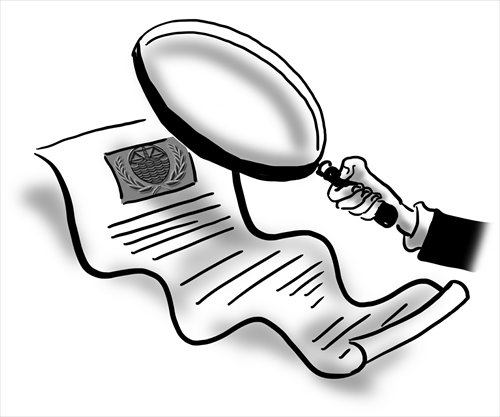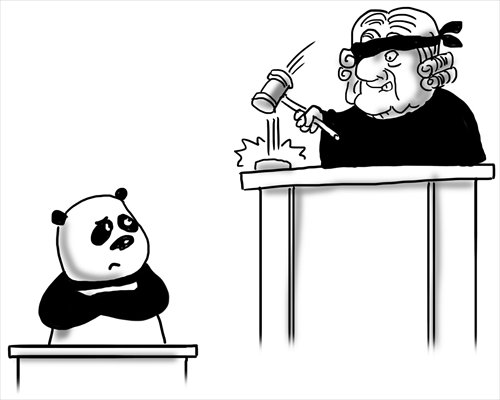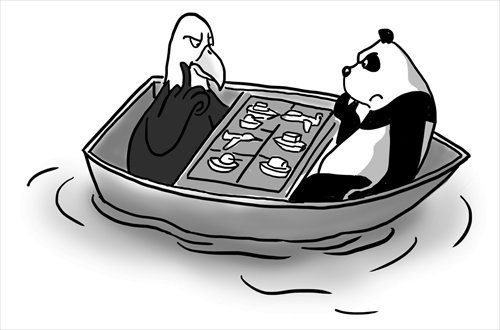Cooperation with ASEAN a balm to sea dispute
The South China Sea issue has heated up since Philippine authorities, with the connivance of the US, misused international law to force through an arbitration award on the South China Sea.
Unlawful arbitration cannot negate China's sovereignty over South China Sea: People’s Daily
The unlawful arbitration concerning the South China Sea unilaterally filed by the Philippines cannot negate China's legitimate rights and interests in the region, the People's Daily said in an editorial that referred to the arbitration as “nothing more than a piece of paper” on Monday.
Arbitration no condition for maritime cooperation
China will by no means agree to cooperation based on arbitration. If Manila sticks to it, China can exercise its right to safeguard sovereignty within its territorial waters at any time. The Philippines will have to face more serious consequences.
US should stop treating South China Sea as next Caribbean
The United States should stay away from the South China Sea issue and avoid repeating its history of military intervention and political manipulation in the Caribbean in the past century.
US history of hypocrisy looms over South China Sea arbitration
It is advisable for Washington to readjust its attitude toward China, as China will firmly safeguard its own territorial sovereignty and legitimate maritime rights as well as peace and stability in the South China Sea.
Arbitral tribunal on South China Sea illegal, ridiculous
The arbitral tribunal on the South China Sea established by the Hague-based Permanent Court of Arbitration is illegal and ridiculous because of the questionable selection of its members and its flawed jurisdictional findings, experts have said.
Denouncing UNCLOS remains option for China after tribunal ruling
For many years, the People's Republic of China has been a strong supporter of the UN Convention on the Law of the Sea (UNCLOS). Recently, however, China's experience has been that the Convention and, in particular, its provisions on compulsory dispute settlement, may be exploited by other states for political reasons.
Arbitral Tribunal unfairly biased against Beijing
In late October, 2015, the UN Convention of the Law of the Sea (UNCLOS) Tribunal issued the Award on Jurisdiction and Admissibility in the Philippines-China arbitration case. The panel of five judges unanimously ruled that among the 15 specific submissions for redress presented by Manila, the Tribunal does have jurisdiction with respect to the matter raised in seven of the submissions, and the jurisdiction over the remaining eight submissions will be determined together with merits.
Chinese, US experts call for more rationality on South China Sea issue
At a forum on the South China Sea issue held on Tuesday in Washington DC, dozens of veteran Chinese and US experts urged China and the US to prevent the issue from damaging overall Sino-US ties by managing their differences in a rational way.
Can Duterte decide Manila’s China policy?
The US has taken the Philippines’ position as a helmsman in dealing with its relationship with China.
South China Sea, a pseudo "hot-spot issue"
The South China Sea seems unsettling, with the final award by an international arbitral tribunal approaching and heavyweight politicians and diplomats exchanging heated words.
Cold war mentality lingers in South China Sea arbitration
With the Philippines as the leading actor and the United States cheering in the bleachers, the political farce of an arbitral tribunal without jurisdiction over the South China Sea issue has sounded an alarm for the lingering cold-war mentality.
Philippine-initiated arbitration on South China Sea undermines international law
The Philippine-initiated arbitration on the South China Sea issue is but a political farce under "legal" pretexts aiming to fake "a new reality," which provokes both principles of international law and order, said an article published in a renowned Chinese biweekly magazine.
New power balance needed in S.China Sea
The Permanent Court of Arbitration at The Hague will on July 12 issue the award on the South China Sea case filed by the Philippines against China.
People’s Daily urges US to reassess South China Sea policy
The US should reassess its South China Sea policy with overall Sino-US ties in mind, the People's Daily said in an editorial published on Wednesday.
US should not challenge China’s bottom line in South China Sea issue
A dialogue on the South China Sea between Chinese and US think tanks was held in Washington DC on Tuesday. The dialogue came at the right time as political forces of the US and the Philippines are now meddling in the waters of the South China Sea.
South China Sea issue must cool down
The following is the full text of a speech delivered by former State councilor Dai Bingguo at China-US Dialogue on South China Sea between Chinese and US think tanks on Tuesday in Washington.
S.China Sea arbitration simply bad for Southeast Asia
The South China Sea arbitration unilaterally initiated by former Philippine President Benigno S. Aquino III has not only soured China-Philippines ties, but also undermined international rule of law and regional stability.



